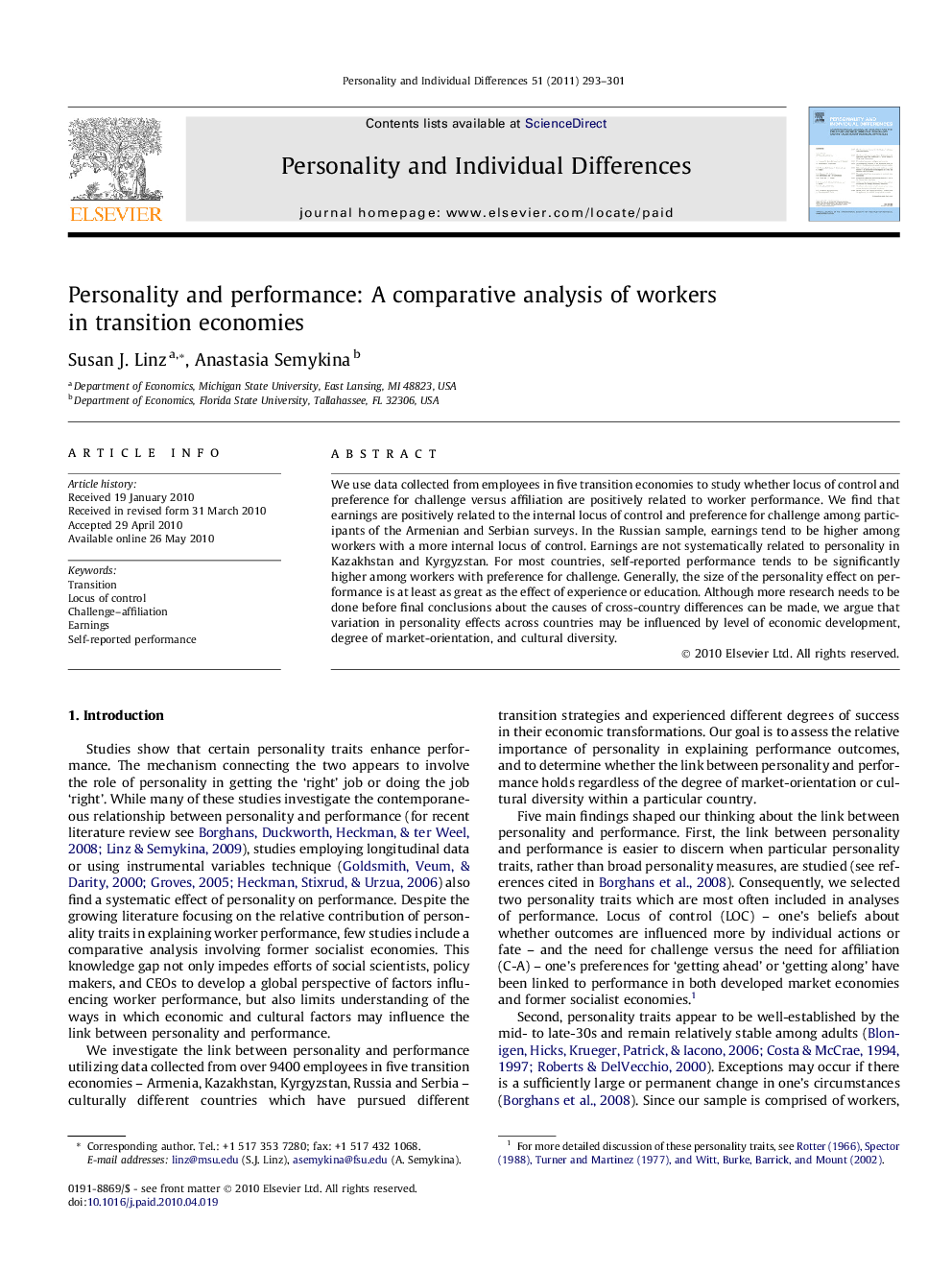| Article ID | Journal | Published Year | Pages | File Type |
|---|---|---|---|---|
| 10440640 | Personality and Individual Differences | 2011 | 9 Pages |
Abstract
We use data collected from employees in five transition economies to study whether locus of control and preference for challenge versus affiliation are positively related to worker performance. We find that earnings are positively related to the internal locus of control and preference for challenge among participants of the Armenian and Serbian surveys. In the Russian sample, earnings tend to be higher among workers with a more internal locus of control. Earnings are not systematically related to personality in Kazakhstan and Kyrgyzstan. For most countries, self-reported performance tends to be significantly higher among workers with preference for challenge. Generally, the size of the personality effect on performance is at least as great as the effect of experience or education. Although more research needs to be done before final conclusions about the causes of cross-country differences can be made, we argue that variation in personality effects across countries may be influenced by level of economic development, degree of market-orientation, and cultural diversity.
Keywords
Related Topics
Life Sciences
Neuroscience
Behavioral Neuroscience
Authors
Susan J. Linz, Anastasia Semykina,
